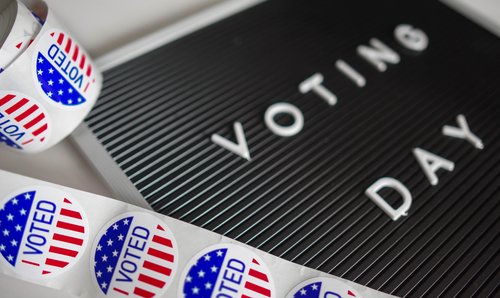The midterms are finally here. Over the past few months, campaigns have handed out countless number of pamphlets and other forms of campaign material to encourage voters.
Campaign literature includes mailers, brochures, lawn signs and various printed materials endorsing a candidate for issue to vote for in an election. Even in the digital age, campaigns spend a lot money on paper and printing.
But where do they come from? Where do they end up?
Here’s how to report on campaign literature in your area.
How are they printed/made?
Who do the candidates go to for their printing needs? Do they go to local printing companies or invest in brand names, such as Staples? Or are they loyal to certain firms? Give campaigns a call or look into records.
How often do campaigns use the United States Postal Services? The USPS offers to create and print various political-related materials, called “political mail.”
How much money do they spend? Does it vary between different types of campaign literature? Is it a significant amount out of their campaign finances?
Are they printed on recyclable material? Does this differ among parties? (Democrat versus Republican, for example). Do some campaigns claim that their materials are recyclable but aren’t? And what do all of those recycling symbols actually mean?
It may be interesting to also look into the more unusual mailers, such as this mailer with a hologram by the Martha McSally campaign in Arizona.
How many are distributed per election?
The amount, of course, differs from campaign to campaign. What kind of campaign is it? What are the issues? Is there an increase during a news event that may affect voters’ perceptions of the issue or candidate?
How much of their staff delivers the literature, or does the campaign hire a company to do it for them? The USPS also advertises Every Door direct mail for candidates to zero in on a specific Zip Code or route.
What happens to them after the election?
Some recycle. Local TV and radio stations have explored how this impacts recycling centers. Some, however, chuck theirs into the nearest waste bin.
Ask your local recycling or waste-collecting centers if they see an increase in campaign literature, especially after an election.
Some businesses tout a shredding and disposing business, such as this one on the east coast. Are there any businesses that specialize in this or only pick it up during an election season?
Post-election, it sometimes falls to campaigns to collect banners or yard signs around town. Some may even have leftovers.
Either way, a few campaigns may send out volunteers or staff to collect and store them for the next campaign, as mentioned in this article from Boston.com.
How many people does it take to finish this job? How many do they collect? Do they re-use for the next campaign? And how much are they paid?
Do they make a difference?
It depends on the type of campaign, but for the most part, campaigning in general has a low effect, according to a study by California political scientists David E. Broockman from Stanford and Joshua Kalla from Berkeley. No matter the media venue, campaigning doesn’t seem to persuade voters already set in their ways, but it may encourage them to go to the polls.
What seems to stick with voters is face-to-face interaction, which can significantly increase turnout. This doesn’t mean going door to door and reciting a scripted stump speech; this means actual conversations between the campaigner and the potential voter. This also extends to phone-banking, not just canvassing.
If anything, voters are nearly overwhelmed with TV ads and literature alike. 9 in 10 voters remembered targeted mail, TV and phone ads in 2014.











